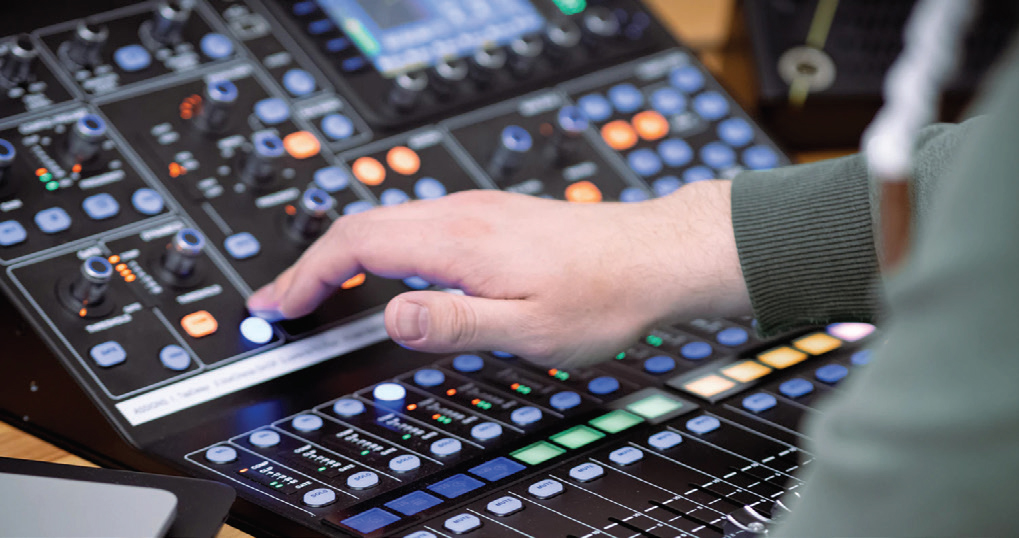As a freelancer, there are only a handful of occasions per year when my invoice to a client includes a line item for a gear rental. I don’t own a rental company, so I don’t invest in equipment with the intent of making a return on investment through client rental fees.
Now, of course, that’s not an excuse not to make investments. Just as an electrician or a plumber who is hired to do a job would reasonably be expected to show up carrying the basic tools required to do that work, I – like virtually all of my freelance colleagues – carry a Pelican 1510 packed with the basic “tools of the trade” – adapters and interconnects of various types, earplugs, flashlight, precision screwdrivers, cable testers, some spike tape and gaff tape, a sharpie, and the all-important granola bar for that mid-show snack.
However, an investment in some Sharpies and tape is far different than sinking thousands of dollars into a mixing console or a processor, but both are investments I have chosen to make. Although freelancers owning their own console are certainly becoming increasingly common in recent years, it still sometimes elicits surprised reactions from people. If I’m not counting on it earning its keep via rental fees, why would I choose to make such an investment? Aren’t I “throwing money away?”
Eliminating Variables
For me personally, no, I don’t think so. The region I work in is a bit unique in terms of live production, and I never know exactly what I’m walking into when I accept a gig – it might be an ancient installed PA in bad need of an alignment, or a temporary portable PA brought in for one event with no accessible processing. It might be a cheap digital console with a few broken faders and a cracked screen, or a “seasoned” analog desk that lacks the more complex digital processing required for the needs of a particular event.
Bringing my own console and/or processor eliminates these huge variables and means I can spend less time worrying about the limitations of the equipment I’ll be facing, and dedicate more time to dealing with other aspects of the event that require my attention. I can sit in my shop and prep the console configuration just as I like it, and then walk into the venue, plug in and power up, and I’m ready to go, or at least ready to deal with other issues.
In the 2003 film The Italian Job, safecracker Stella Bridger (played by Charlize Theron) defends her methods and toolsets by saying, “technology guarantees me speed and accuracy.” Veteran heist orchestrator Charlie Croker (Mark Wahlberg) responds with “there are no guarantees in this business, Stella.” And that’s equally true about the fast-paced and quickly changing live production environment (although the consequences of a poor audio mix are somewhat lower than those of a botched heist operation).
I agree with both statements – it’s the variables that cause issues for us, and I find professional success through eliminating unnecessary variables and managing the necessary ones. Often, bringing my own console or processor eliminates a number of those variables and grants me more mental bandwidth and time to focus on the things that require my attention.
Other Returns
There is also a “personal enjoyment” element to this – in the same way that one might would purchase a motorcycle, or a gaming console, or have a swimming pool installed at their home, despite the fact that these items will never generate income for the average owner, and thus, never constitute a “return on investment” in the strictest sense. These are investments made because they pay return in non-financial ways such as personal enjoyment.
As a person who is passionate about audio and derives enjoyment from working with audio equipment, I might view an investment in a mixing console (or vintage outboard compressor or insert-piece-of-gear-here) as something that makes sense to me simply for its own sake – quite simply, because I like it. (And because I’m quite sure my girlfriend would prefer me tinkering around on my workbench with a mixer and some multitracks rather than zooming around the city on a motorcycle, for which I am wholly unqualified.)
To be clear, I’m absolutely not advocating that everyone should make similar investments. For many people, for many reasons, such a purchase may not make sense (financial or otherwise).
Perhaps you always work with the same venue(s) and so the console is a known quantity. Perhaps you have a good relationship with local production companies and can get access to whatever equipment you need. Perhaps it simply comes down to dollars and cents. (I’ve also heard from at least one colleague whose spouse had forbid him to make such a purchase.) Also, by purchasing gear for personal use, you also saddle the costs of maintaining that gear, either so it can maintain a long and fruitful lifespan or to retain its value for an eventual sale.
But for me, these tradeoffs are worth it, the peace of mind and convenience it has brought me has paid off in spades, and in this business, a little peace of mind goes a long way.













